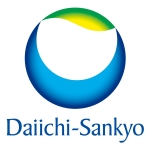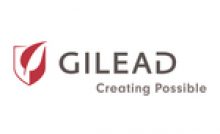Daiichi Sankyo Announces Late-Breaking Phase 1 Dose Expansion Data for Patritumab Deruxtecan in Patients with EGFR-Mutated NSCLC at ESMO 2020


- HER3 directed ADC demonstrates clinical activity in patients with EGFR-mutated metastatic or unresectable NSCLC previously treated with a tyrosine kinase inhibitor and platinum-based chemotherapy in first presentation of dose expansion data for patritumab deruxtecan
- Global phase 2 study evaluating patritumab deruxtecan in similar patient population is planned
TOKYO & MUNICH & BASKING RIDGE, N.J.–(BUSINESS WIRE)–Daiichi Sankyo Company, Limited (hereafter, Daiichi Sankyo) presented updated phase 1 data for patritumab deruxtecan (U3-1402), a HER3 directed DXd antibody drug conjugate (ADC), including the first results from one cohort of the dose expansion part of the study in patients with epidermal growth factor receptor (EGFR)-mutated metastatic or unresectable non-small cell lung cancer (NSCLC) after failing treatment with a tyrosine kinase inhibitor (TKI). The late-breaking data (Abstract #LBA62) were highlighted during a mini-oral presentation today at the European Society of Medical Oncology Virtual Congress 2020 (#ESMO20).
Lung cancer is the most common cancer and the leading cause of cancer mortality worldwide, with most lung cancers diagnosed at an advanced or metastatic stage.1,2 Approximately 15-50 percent of NSCLC patients have an EGFR mutation.3 In patients with NSCLC, it is estimated that approximately 83 percent express the HER3 protein, which can be associated with an increased incidence of metastases, reduced survival and resistance to standard of care cancer treatments.4,5
Prior to receiving treatment with patritumab deruxtecan, patients in the study had received a median of four prior therapies. All patients had been previously treated with an EGFR TKI, with the majority receiving osimertinib (86 percent); 90 percent of patients received platinum-based chemotherapy; and 40 percent had received an anti-PD-1/PD-L1 therapy. Forty-seven percent of evaluable patients in the study had a history of brain metastases that were stable at the time of study entry.
The preliminary objective response rate (ORR), assessed by blinded independent central review, was 25 percent in 56 evaluable patients treated with patritumab deruxtecan monotherapy (5.6 mg/kg) in the dose escalation and dose expansion parts of the study. One patient achieved a complete response (CR) and 13 achieved a partial response (PR). At the time of data cut-off, three additional PRs were awaiting confirmation, and six patients had only one tumor evaluation. The disease control rate (DCR) was 70 percent with a median duration of response (DoR) of 6.9 months. Stable disease was observed in 45 percent of patients.
�These initial responses seen with patritumab deruxtecan in patients with significantly pre-treated EGFR-mutated NSCLC and diverse mechanisms of resistance to EGFR therapy are very encouraging, considering the lack of approved effective therapies in this setting, said Helena Yu, MD, Medical Oncologist, Memorial Sloan Kettering Cancer Center, and a trial investigator and presenter of the late-breaking data. These data provide support that targeting HER3 using an antibody drug conjugate might be a treatment strategy that can overcome the various mechanisms of resistance in patients with EGFR-mutated NSCLC who have progressed on currently available treatment options.
The overall safety and tolerability profile of patritumab deruxtecan was consistent with that seen in the dose escalation phase of the study. The most common treatment emergent adverse events (TEAEs) of any grade, occurring in ?25 percent of patients who received patritumab deruxtecan (5.6 mg/kg) included fatigue (58 percent), nausea (54 percent), thrombocytopenia (53 percent), decreased appetite (35 percent), neutropenia (33 percent), vomiting (30 percent), alopecia (30 percent), anemia (26 percent) and constipation (25 percent). The most common TEAEs of grade ?3 severity occurring in more than 10 percent of patients were thrombocytopenia (28 percent) and neutropenia (19 percent). Five patients (9 percent) experienced a TEAE that led to treatment discontinuation. There were three cases (5 percent) of confirmed drug-related interstitial lung disease (ILD), as determined by an independent adjudication committee.
HER3 is frequently overexpressed in NSCLC and provides an attractive target for therapeutic intervention in tumors with a broad range of resistance mechanisms to standard therapies, said Gilles Gallant, BPharm, PhD, FOPQ, Senior Vice President, Global Head, Oncology Development, Oncology R&D, Daiichi Sankyo. These preliminary results showing disease control with patritumab deruxtecan in patients over a short period of follow-up are very encouraging and need to be confirmed with longer term follow-up. Based on these findings, we plan to initiate a phase 2 trial of patritumab deruxtecan in patients with advanced or metastatic EGFR-mutated NSCLC.
Summary of Results
| Efficacy Measure | Total Evaluable in Cohort 1 (n=56)i, ii, iii |
| Confirmed ORR (%) (95% CI %) iv, v | 25% (14.4 38.4) |
| CR | 2% |
| PR | 23% |
| SD | 45% |
| PD | 16% |
| NE | 14% |
| DCR (%) (95% CI)vi | 70% (55.9-81.2) |
| Median DoR (95% CI) (months) | 6.9 months (3.0-7.0) |
CI, confidence interval; ORR, objective response rate; CR, complete response; DCR, disease control rate; DoR, duration of response; PR, partial response; SD, stable disease; PD, progressive disease; NE, not evaluable
i Patritumab deruxtecan 5.6 mg/kg dose in dose escalation and cohort 1 of dose expansion included in efficacy analysis set
ii Data cut-off of April 30, 2020
iii Median follow-up time was five months, with 28 patients continuing to receive treatment at the time of data cut-off
iv 22/56 (39%) patients had best percentage decrease in sum of tumor diameters ? 30%
v ORR is CR+PR
vi DCR is CR + PR +SD
About the Study
The global, multicenter, open label, two-part phase 1 study is evaluating patritumab deruxtecan in patients with metastatic or unresectable EGFR-mutated NSCLC whose disease has progressed after standard therapy, including an EGFR TKI.
The dose escalation part of the study evaluated patients with metastatic or unresectable EGFR-mutated NSCLC who experienced disease progression on erlotinib, gefitinib, dacomitinib or afatinib and tested negative for the T790M mutation or who experienced disease progression on osimertinib regardless of T790M status. The primary objective of the dose escalation phase was to assess the safety and tolerability of patritumab deruxtecan and determine the recommended dose for expansion (RDE). Data from the dose escalation were presented at the 2019 American Society of Clinical Oncology (ASCO) Annual Meeting and the 2019 World Conference on Lung Cancer (WCLC).
The dose expansion part of the study is evaluating patritumab deruxtecan at the RDE (5.6 mg/kg) in three cohorts. Cohort 1 includes patients with metastatic or unresectable EGFR-mutated NSCLC who experienced disease progression after taking one or more EGFR tyrosine kinase inhibitor (TKI) and one or more platinum based chemotherapy regimens. Cohort 2 includes patients with squamous or non-squamous NSCLC without EGFR activating mutations. Cohort 3 includes patients with NSCLC with EGFR mutations including any histology other than combined small cell and non-small cell lung cancer; patients in Cohort 3 will be randomized 1:1 to receive the RDE regimen (Cohort 3a) or an escalating up-titration regimen of patritumab deruxtecan (Cohort 3b).
The primary objective of the dose expansion phase of the study is to assess efficacy as measured by confirmed ORR of patritumab deruxtecan. Secondary study endpoints include investigator assessed ORR; safety, tolerability and preliminary efficacy; and characterization of the pharmacokinetics of patritumab deruxtecan. The study is currently enrolling patients at multiple sites in the US, Europe, Japan and other countries in Asia. For more information, visit ClinicalTrials.gov.
About Non-Small Cell Lung Cancer
Lung cancer is the most common cancer and the leading cause of cancer mortality worldwide; there were an estimated 2.1 million new cases of lung cancer in 2018 and 1.8 million deaths.1 Most lung cancers are diagnosed at an advanced or metastatic stage.2 Non-small cell lung cancer (NSCLC) accounts for 80 to 85 percent of all lung cancers.6 The introduction of targeted therapies and checkpoint inhibitors in the past decade has improved the treatment landscape for patients with advanced or metastatic NSCLC; however, the prognosis is particularly poor among patients who have progressed after treatment with standard therapies. For those who are not eligible for current treatments, or whose cancer continues to progress, new therapeutic approaches are needed.7
EGFR mutation is a well-established oncogenic target for management of advanced stage NSCLC.8 For patients with advanced EGFR-mutated NSCLC, targeted therapy with EGFR TKIs offers higher response rates and progression-free survival compared to chemotherapy.8 However, most patients eventually develop resistance to such drugs, at which time standard treatment options are limited.9 Clinical resistance to EGFR TKIs has been linked to multiple gene-based mechanisms, and in many cases, the underlying cause remains unknown.10,11,12
About HER3
HER3 is a member of the EGFR family of tyrosine kinase receptors, which are associated with aberrant cell proliferation and survival.13 HER3 expression has been associated with an increased incidence of metastases and reduced survival in patients with NSCLC, with expression frequency reported to be as high as 83 percent.4,5 The majority of EGFR-mutated NSCLCs show some level of HER3 expression.5,14 Currently, no HER3 directed therapies are approved for any cancer.
About Patritumab Deruxtecan
Patritumab deruxtecan (U3-1402) is one of three lead DXd antibody drug conjugates (ADC) in the oncology pipeline of Daiichi Sankyo.
ADCs are targeted cancer medicines that deliver cytotoxic chemotherapy (“payload”) to cancer cells via a linker attached to a monoclonal antibody that binds to a specific target expressed on cancer cells. Designed using Daiichi Sankyos proprietary DXd ADC technology, patritumab deruxtecan is comprised of a human anti-HER3 antibody attached to a topoisomerase I inhibitor payload by a tetrapeptide-based linker.
Patritumab deruxtecan is currently being evaluated in a phase 1 study in previously treated patients with metastatic or unresectable NSCLC and a phase 1/2 study in patients with HER3 expressing metastatic breast cancer. A phase 2 study of patritumab deruxtecan has recently been initiated in patients with advanced or metastatic colorectal cancer who are resistant, refractory, or intolerant to at least two prior lines of systemic therapy.
Patritumab deruxtecan is an investigational agent that has not been approved for any indication in any country. Safety and efficacy have not been established.
About Daiichi Sankyo Cancer Enterprise
The mission of Daiichi Sankyo Cancer Enterprise is to leverage our world-class, innovative science and push beyond traditional thinking to create meaningful treatments for patients with cancer. We are dedicated to transforming science into value for patients, and this sense of obligation informs everything we do. Anchored by our DXd antibody drug conjugate (ADC) technology, our powerful research engines include biologics, medicinal chemistry, modality and other research laboratories in Japan, and Plexxikon Inc., our small molecule structure-guided R&D center in Berkeley, CA. For more information, please visit: www.DSCancerEnterprise.com.
About Daiichi Sankyo
Daiichi Sankyo Group is dedicated to the creation and supply of innovative pharmaceutical therapies to improve standards of care and address diversified, unmet medical needs of people globally by leveraging our world-class science and technology. With more than 100 years of scientific expertise and a presence in more than 20 countries, Daiichi Sankyo and its 15,000 employees around the world draw upon a rich legacy of innovation and a robust pipeline of promising new medicines to help people. In addition to a strong portfolio of medicines for cardiovascular diseases, under the Groups 2025 Vision to become a Global Pharma Innovator with Competitive Advantage in Oncology, Daiichi Sankyo is primarily focused on providing novel therapies in oncology, as well as other research areas centered around rare diseases and immune disorders. For more information, please visit: www.daiichisankyo.com.
1 World Health Organization. Global Cancer Observatory: Cancer Today. Lyon, France: International Agency for Research on Cancer. 2018. Accessible at: https://gco.iarc.fr/today.
2 American Cancer Society. Lung Cancer Prevention and Early Detection. 2019.
3 Bogdan Grigoriu, et al. Management of EGFR mutated nonsmall cell lung carcinoma patients. European Respiratory Journal. 2015;45:1132-1141.
4 Muller-Tidow C, et al. Identification of metastasis-associated receptor tyrosine kinases in non-small cell lung cancer. Cancer Res. 2005;65:1778-1772.
5 Scharpenseel et al. EGFR and HER3 expression in circulating tumor cells and tumor tissue from non-small cell lung cancer patients. Scientific Reports. 2019;9:7406.
6 American Cancer Society. Types of Non-Small Cell Lung Cancer. 2019.
7 Economopoulou and Mountzios. The emerging treatment landscape of advanced non-small cell lung cancer. Ann Transl Med. 2018;6(8):138.
8 Planchard D, et al. Metastatic non-small cell lung cancer: ESMO Clinical Practice Guidelines for diagnosis, treatment and follow-up. Ann of Onc. 2018;29(4):iv192237. Updated Sept. 2019.
9 Morgillo F, et al. Mechanisms of resistance to EGFR targeted drugs: lung cancer. ESMO Open. 2016;1:e000060.
10 Wu, et al. Management of acquired resistance to EGFR TKItargeted therapy in advanced non-small cell lung cancer. Mol Cancer. 2018;17:38.
11 Papadimitrakopoulou, et al. Analysis of resistance mechanisms to osimertinib in patients with EGFR T790M advanced NSCLC from the AURA3 study. Ann Oncol. 2018;29(8).
12 Ramalingam, et al. Osimertinib and other third-generation EGFR TKI in EGFR-mutant NSCLC patients. Ann Oncol. 2018;29(1):i20i27.
13 Mishra R, et al. HER3 signaling and targeted therapy in cancer. Oncology Reviews. 2018;12:355.
14 Kawano, et al. ErbB3 mRNA expression correlated with specific clinicopathologic features of Japanese lung cancers. J Surg Res. 2008;146:43-48.
Contacts
Global/US:
Victoria Amari
Daiichi Sankyo, Inc.
vamari@dsi.com
+1 908 900 3010 (mobile)
EU:
Lydia Worms
Daiichi Sankyo Europe GmbH
lydia.worms@daiichi-sankyo.eu
+49 (89) 7808751
Japan:
Masashi Kawase
Daiichi Sankyo Co., Ltd.
kawase.masashi.a2@daiichisankyo.co.jp
+81 3 6225 1126 (office)
Investor Relations Contact:
DaiichiSankyoIR@daiichisankyo.co.jp
Recent Posts
AIMS Group Announces Official Partnership with the World Trading Tournament (WTT)
— $2.75 Million Prize Pool & Grand Finale in Dubai Set to Redefine Global Trading…
Travelodge Launches Kyoto Shijo Omiya Hotel with Newly Renovated Design and Buy 1 Get 1 Promo
KYOTO, JAPAN - Media OutReach Newswire - 18 April 2025 - Travelodge Hotels Asia is…
Octa broker on graphical analysis: identifying potentially profitable trades with candlestick charts
KUALA LUMPUR, MALAYSIA - Media OutReach Newswire - 18 April 2025 - Trading success often…
Amur Gas Chemical Complex 75% Complete, Reports SIBUR
MOSCOW, RUSSIA - Media OutReach Newswire - 18 April 2025 – SIBUR, Russia's largest producer…
Hong Kong: A whole new world of sportainment
HONG KONG SAR - Media OutReach Neswire - 18 April 2025 - Coldplay, one of…
BRDB and Award-Winning Heatherwick Studio to Unveil Community-Focused Development in Damansara Heights
The project will blend retail, residential, and community spaces to encourage an interconnected, people-centered living…


